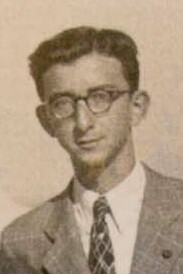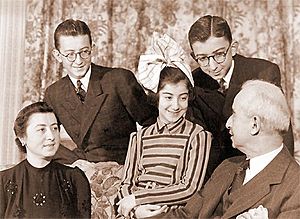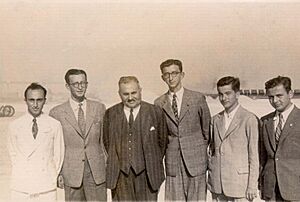Erdal İnönü facts for kids
Quick facts for kids
Erdal Inönü
|
|
|---|---|

Inönü in 1941
|
|
| Acting Prime Minister of Turkey | |
| In office 16 May 1993 – 25 June 1993 |
|
| President | Süleyman Demirel |
| Preceded by | Süleyman Demirel |
| Succeeded by | Tansu Çiller |
| Minister of Foreign Affairs | |
| In office 27 March 1995 – 6 October 1995 |
|
| Prime Minister | Tansu Çiller |
| Preceded by | Murat Karayalçın |
| Succeeded by | Ali Coşkun Kırca |
| Deputy Prime Minister of Turkey | |
| In office 20 November 1991 – 12 September 1993 |
|
| Prime Minister | Süleyman Demirel |
| Preceded by | Ekrem Pakdemirli |
| Succeeded by | Murat Karayalçın |
| Leader of the Social Democratic Populist Party | |
| In office 30 May 1986 – 12 September 1993 |
|
| Preceded by | Aydın Güven Gürkan |
| Succeeded by | Murat Karayalçın |
| Leader of the Social Democracy Party | |
| In office 18 December 1983 – 3 November 1985 |
|
| Preceded by | Cezmi Kartay |
| Succeeded by | Position abolished |
| In office 26 May 1983 – 23 June 1983 |
|
| Preceded by | Position established |
| Succeeded by | Cezmi Kartay |
| Member of the Grand National Assembly | |
| In office 28 September 1986 – 24 December 1995 |
|
| Constituency | İzmir (1986, 1987, 1991) |
| Personal details | |
| Born | 6 June 1926 Ankara, Turkey |
| Died | 31 October 2007 (aged 81) Houston, Texas, United States |
| Political party | Republican People's Party (CHP) |
| Other political affiliations |
Social Democracy Party Social Democratic Populist Party |
| Relations | İsmet İnönü (father) |
| Alma mater |
|
| Profession | Physicist, politician |
| Scientific career | |
| Fields | Theoretical physics |
| Institutions |
|
| Thesis | Interpretation of large ionization bursts observed at high altitudes in high pressure chambers under thick shields (1952) |
| Doctoral advisor | Robert F. Christy |
Erdal İnönü (born June 6, 1926 – died October 31, 2007) was a Turkish scientist and politician. He was a physicist who studied how things work in the universe. He also served as a temporary prime minister of Turkey for a short time in 1993.
He was also the Deputy Prime Minister from 1991 to 1993. Later, he became the Minister of Foreign Affairs in 1995. He led two political parties: the Social Democracy Party (SODEP) and the Social Democratic Populist Party (SHP). His father was İsmet İnönü, who was the second president of Turkey.
Erdal İnönü started a political party called SODEP in 1983. He wanted his party to take part in the 1983 elections. But a group called the National Security Council, formed after a military takeover in 1980, stopped him from running for office. He stepped down as chairman, and Cezmi Kartay took his place. However, SODEP was completely stopped from joining the election. So, İnönü became the leader again shortly after. His party ran in the 1984 local elections and came in second place.
SODEP later joined with another party in 1985. This created the new Social Democratic Populist Party (SHP). İnönü became the leader of SHP in 1986. In the 1986 elections, SHP came third. İnönü was elected as a member of Parliament for İzmir. He was the only SHP candidate who won in that election.
After the 1991 general election, SHP formed a team with Süleyman Demirel's True Path Party (DYP). İnönü became the Deputy Prime Minister. He briefly served as the acting prime minister in 1993. This happened after Demirel was chosen as president. When the DYP chose Tansu Çiller as their new leader, she formed a government. İnönü stayed as deputy prime minister until he left his party leadership role in 1993. He later served as the foreign minister in 1995. He then stepped down as a Member of Parliament in the 1995 general election.
Contents
Early Life and Education

Erdal İnönü was born in Ankara, Turkey, on June 6, 1926. He was the third of four children. His father was İsmet İnönü, who was the first Prime Minister and second President of Turkey. His mother was Mevhibe İnönü.
He studied physics at Ankara University and finished in 1947. He then earned his PhD from California Institute of Technology in 1951. There, he worked with Eugene Wigner and helped start the study of "group contractions." This is a complex topic in physics.
After his studies, İnönü returned to Turkey. He worked as an assistant professor at Ankara University. From 1964 to 1974, he was a physics professor at Middle East Technical University (METU). He was also the first head of the Theoretical Physics Department there. During this time, he began research on how neutrons move. From 1969 to 1971, he was the dean of METU's Faculty of Art and Sciences. He also served as the president of METU from 1970 to 1971.
In 1974, İnönü moved to Boğaziçi University in Istanbul. He taught there until 1983, when he entered politics. While at Boğaziçi, he was the dean of the Faculty of Art and Sciences from 1976 to 1982.
Political Journey
Even though the military government stopped İnönü's party from running in the 1983 elections, SODEP survived. It became the second-largest party in the 1984 local elections. In November 1985, SODEP and another party, the People's Party, joined together. They formed the Social Democratic Populist Party (SHP).
Erdal İnönü briefly lost his leadership role when the parties merged. But he became the leader of SHP again in May 1986. SHP was a very important party in Turkish politics during the late 1980s and early 1990s. İnönü's party competed against Turgut Özal's Motherland Party in the 1987 and 1991 elections. One reason SHP didn't win an election was that votes for the center-left were split between SHP and another party, the Democratic Left Party (DSP). Erdal İnönü was also part of the Socialist International, an organization of socialist parties worldwide.
Erdal İnönü served as Deputy Prime Minister in two coalition governments. These governments were formed by the center-right DYP and SHP. The first was led by Süleyman Demirel from 1991 to 1993. When Demirel became president, Tansu Çiller took over. These governments worked together partly because they didn't like the outgoing Motherland Party.
After Leaving Party Leadership
In the summer of 1993, Erdal İnönü announced he would not seek to lead his party again. During the party's congress in September 1993, he resigned as party leader. This also meant he left his government position. Murat Karayalçın took over both roles.
In February 1995, SHP and the recently re-established Republican People's Party (CHP) merged. Erdal İnönü suggested that the new party be named CHP. In the CHP, Erdal İnönü was given the special title of honorary chairman. In 1995, he served as the Minister of Foreign Affairs for about six months.
Later Life and Legacy
In 2004, he received the Wigner medal. This award is given for important contributions to physics, like his work on group contractions. İnönü was also known for his studies on the history of science in Turkey. He taught at Sabancı University and the Feza Gürsey Institute from 2004 to 2007.
Death
Erdal İnönü passed away in Houston, Texas, United States, on October 31, 2007. He was receiving treatment for leukaemia, a type of cancer. His body was brought back to Turkey. He was buried at the Zincirlikuyu Cemetery in Istanbul on November 4, 2007. Before that, a state funeral was held in Ankara, and an Islamic funeral took place in the Teşvikiye Mosque in Istanbul.
See also
- Cezmi Kartay
- Necdet Calp
- Aydın Güven Gürkan
 | Leon Lynch |
 | Milton P. Webster |
 | Ferdinand Smith |


